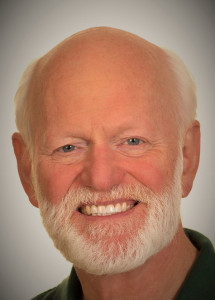 Can we change how we do things and become better leaders? Of course! Will we do it, though? That’s another question.
Can we change how we do things and become better leaders? Of course! Will we do it, though? That’s another question.
On a recent episode of my Voice America radio show, I talked with best-selling author and leadership expert Marshall Goldsmith about strategies for changing our behavior. Marshall’s new book, Triggers: Creating Behavior That Lasts — Becoming the Person You Want to Be, offers a step-by-step process to help us identify and interrupt the triggers that drive us back to our old habits.
I’ve used Marshall’s approach and I’ve always found it to be simple, clear, and effective. In fact, his process produced such great results at GE that we incorporated it into our leadership development program, and we now use it in our “Train the Trainer” seminars all over the world.
Marshall and I had a great conversation revolving around his coaching strategies, his seminars, and his advice on how managers can inspire the people who count on them for success. Here are a few of the topics we discussed.
How we can change once and for all. Why don’t we live up to our New Year’s resolutions? Why do we always fall short of our own expectations? The reason, Marshall explains in “Triggers,” is that we allow ourselves to be created by our environments, rather than the other way around. Our thoughts and actions are dictated by what happens around us. “These triggers in the outside world influence our behavior,” Marshall told me, “and we need to learn how to anticipate and deal with them.”
How to recognize triggers. The technique Marshall uses is something he calls the daily question process. “It takes two minutes a day,” he said, “and costs absolutely nothing.” In one column of an Excel spreadsheet, write a list of questions about the behaviors you’d like to change. For example, one of Marshall’s own questions is: “How many times a day did you try and prove you’re right when it wasn’t worth it?” Another is “How many angry or destructive comments did you make?” Each question should have a simple answer: yes, no, or a number. Now create a box for each question for each day of the week. Fill out your spreadsheet every day, and at the end of the week you’ll have a report card of sorts. “Your report card might not be pretty,” Marshall said. “Life is easy to talk about, but it’s incredibly difficult to live. What I teach isn’t hard to understand, but it takes courage to do.”
The importance of feedback. “In my classes I always ask: Should we ask our customers for feedback? Yes, yes, people say. Do we get better based on what we learn? The answer is always yes,” Marshall said. “But when I ask people: Do you have a husband, wife, or partner at home? Do you ask them questions about what you can do to be a better partner? The answer is always silence. So I have them get out their phones and text their (loved ones): how can I be a better partner in this relationship?”
Active vs. passive questions. Marshall has found that if you ask someone a passive question, you will frequently get a negative response, one that shifts the blame to the environment. For instance, “Are you given meaningful work?” might prompt the answer “No, they make me do trivia.” Rather than ask an employee if the company helps them find meaning in their work, managers should ask if the person does their best to find their own meaning, set clear goals for themselves, and monitor their own progress.
Why your client matters. Never make coaching about your own ego and how smart you are. Make it about the great person you’re working with and how proud you are of them. Marshall recounted a talk he had with Alan Mulally, the retired CEO of Ford, who said, “I don’t design the cars, build the cars, or sell the cars. The cars have to have great people behind them, and my leadership is about them.” “Alan told me that if you pick the right clients, your coaching process will always work,” Marshall said. “If you pick the wrong ones, your coaching process will never work.”
The difference between men and women. Studies have shown that the average woman is perceived as having better leadership skills than the average man, but Marshall finds women in business tend to be much harder on themselves than men are. “I tell my women clients, ‘Please don’t be so hard on yourself. You can’t be the perfect everything to everyone … Let go of guilt.”
His advice for leaders and the people who work with them. “Take a deep breath and imagine you’re 95 years old,” Marshall said. “Imagine you have the ability to go back in time and talk to yourself as a younger person. What advice would the 95-year-old you — who now knows what matters in life — have for the younger you? Whatever your answer is, do that.” He added, “One thing I commonly hear from old people is, ‘I was so busy chasing what I didn’t have, that I didn’t recognize what I did have.’ ”




